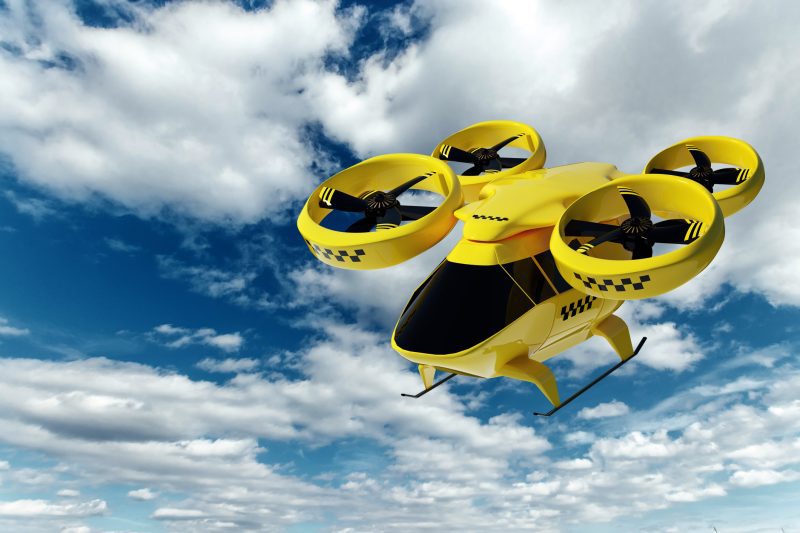We are told that flying taxis will soon be a reality and no longer just something from the sci-fi world. But for all the start-ups and promises, the brakes have been put on another air taxi operation, which begs the question, will they ever really take off?
German-based aviation start-up Volocopter wanted to break records at last summer’s Olympic Games in Paris by having its two-seater electric aircraft carry passengers around Paris. Despite all the hopes and planning, it didn’t get off the ground because it couldn’t obtain the necessary safety licences from the French authorities.
And in the UK, the government has been aiming for “routine” flying taxis and emergency service drones by 2028 – before the ban on the sale of new petrol and diesel vehicles is introduced.
Grounded
But as more deadlines approach, Volocopter and rival German air taxi startup Lilium have filed for insolvency and are now trying to reorganise themselves, according to e-mobility publication electrive.
Now, aviation giant Airbus has also put the brakes on its air taxi project, which would see its CityAirbus NextGen model carry a pilot and three passengers. It is designed to travel at 120 km/h and completed its first test flight in November, 2024.
But Electrive reports that Airbus Helicopters has “discontinued the development of its electric air taxi in the southern German city of Donauwörth for the time being” but “did not say how long the break would last”.
Despite the setback, the company emphasised that it is not currently looking to cancel the CityAirbus air taxi project.
Power problems
It told German radio station Bayrischer Rundfunk that the current battery technology is not where it needs to be – to fly a distance of 100 kilometres with four passengers. Bruno Even, CEO of Airbus Helicopters, told a press conference that “progress still needs to be made. We don’t see this technological maturity being reached in the near future.”
As each developer tries to address issues preventing routine air taxi flights, Electrive reports that the race is still on to be the first “market-ready air taxi” to carry passengers, with Chinese firms Ehang and Xpeng Aeroht joining American companies Archer and Joby to take on their German and French rivals.
But as well as ensuring the technology is safe and reliable, Electrive reminds us that many developers are facing challenges with the multi-year certification and authorisation procedures, similar to those that grounded Volocopter in Paris last summer.
Electric vehicle manufacturers are still restricted by battery performance when producing cars today and that technology is much further along the line than the air taxi industry. If and when the technology overcomes these hurdles, there needs to be he investment in infrastructure to make flights routine. Otherwise, it will be consigned to the pile of pioneering technology that never took off – such as Beta max, Mini Discs and Windows smartphones – which all had leading global corporations behind them.
Flying taxis might be the future, but with each setback and delay, if it does take off, it looks like being the distant future. And, as the expectation and excitement dwindle with each postponement and cancellation, flying taxis might remain in the realm of science-fiction, with future generations visiting grounded prototypes in museums, wondering what might have been.


